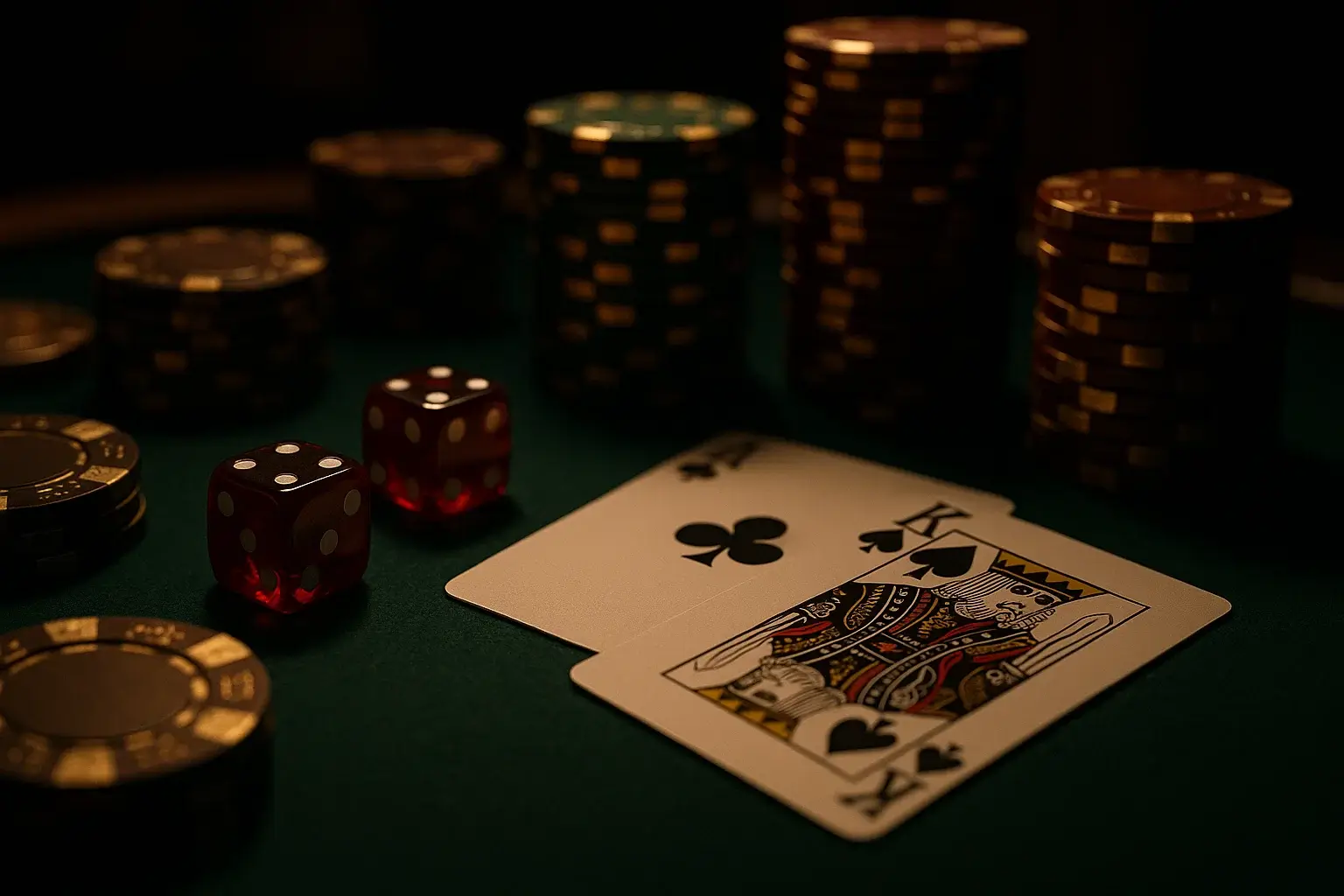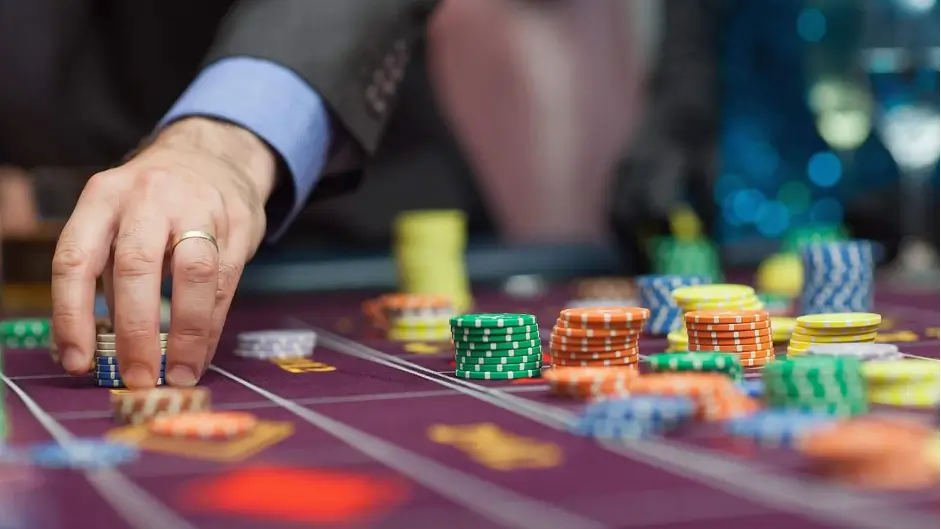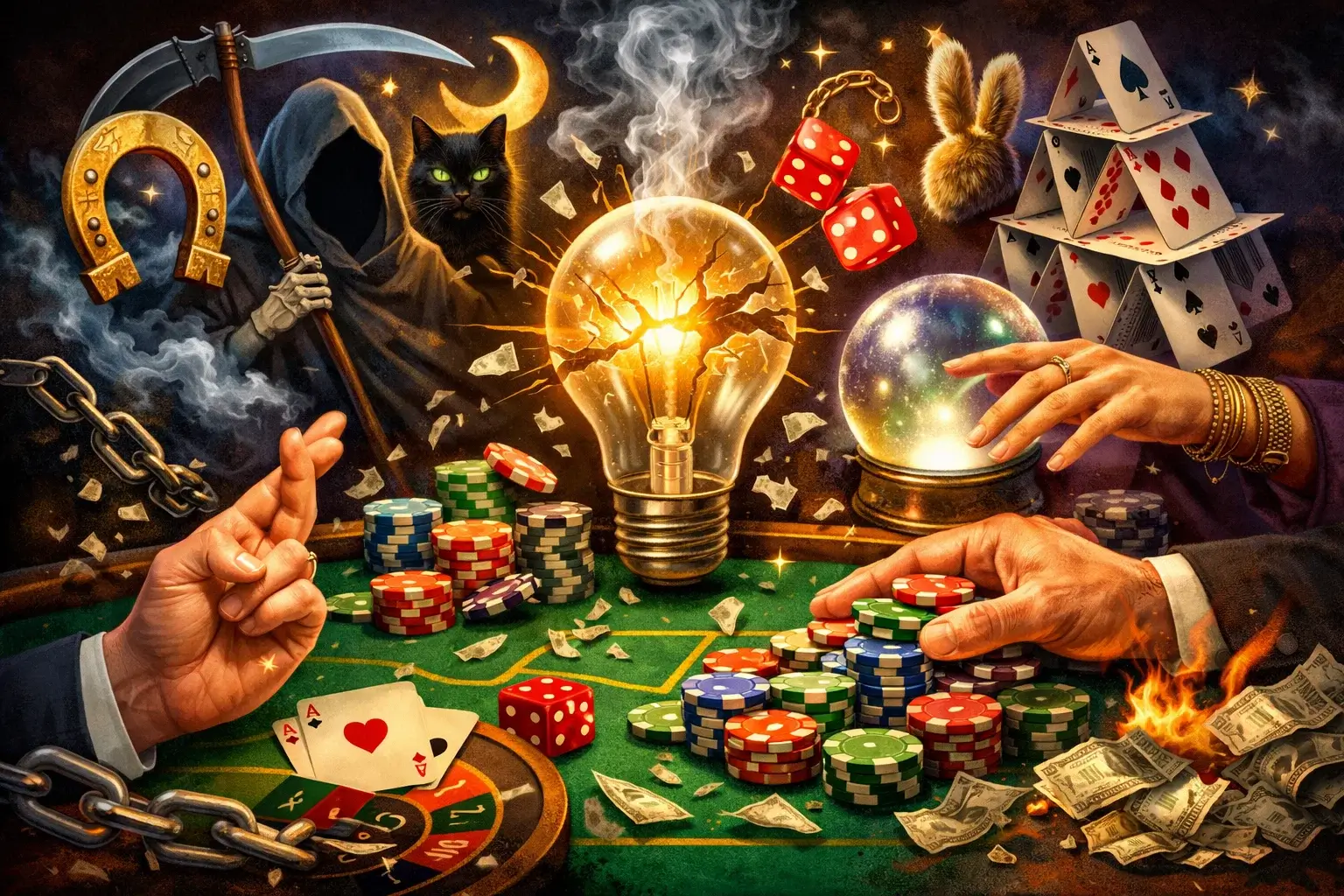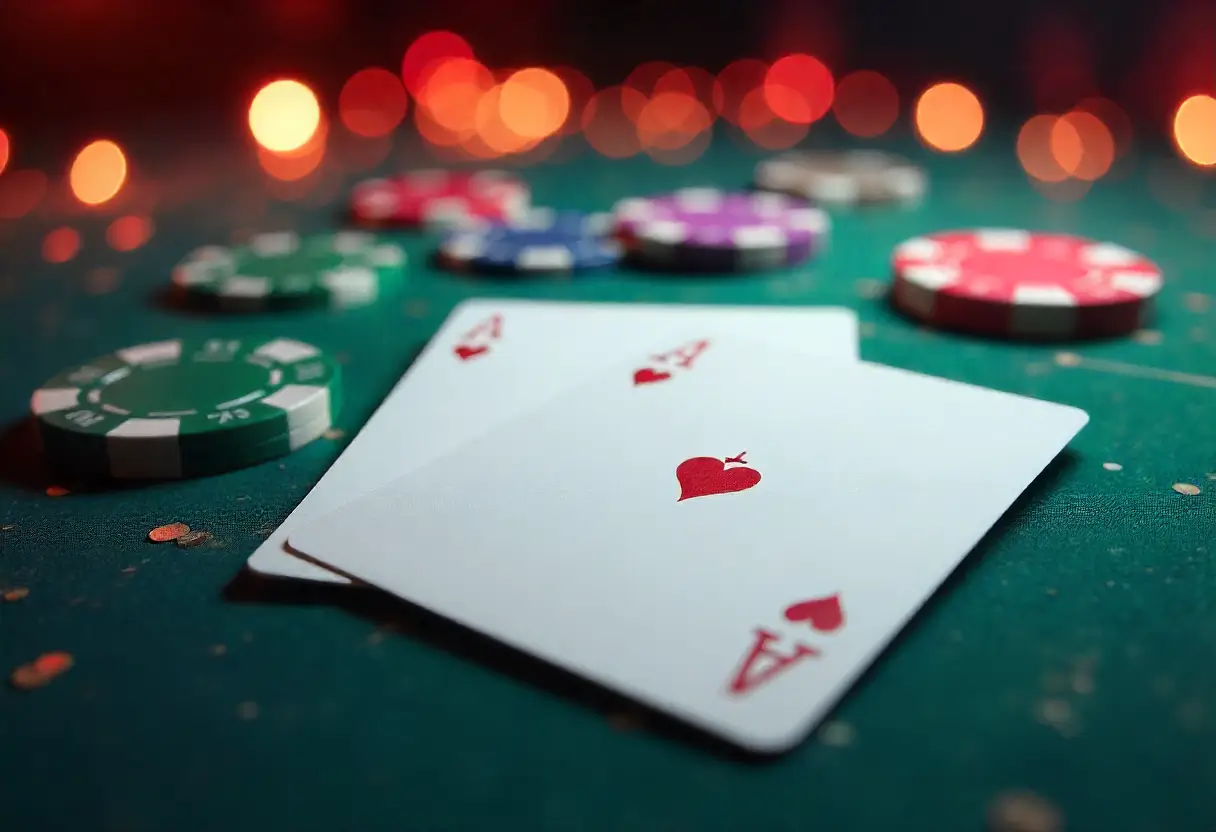So, you’ve decided to dive into the world of online casino table games? Welcome to the club! Whether you’re a complete newbie who thinks “doubling down” is something you do with homework, or you’ve dabbled a bit and want to expand your horizons, you’re in the right place. After years of watching players make their first nervous bets and eventually turn into seasoned veterans, I’ve put together this comprehensive guide to help you navigate the felt-covered waters of online casino table games.
Let’s get one thing straight from the start: table games aren’t slot machines. You can’t just mash buttons and hope for the best (well, you can, but your bankroll will hate you for it). These games require at least a basic understanding of rules, strategies, and etiquette. But don’t worry – they’re not rocket science either. Think of them as video games for adults, except the achievements come in the form of actual money.
Blackjack: The Strategy Game with the Lowest House Edge
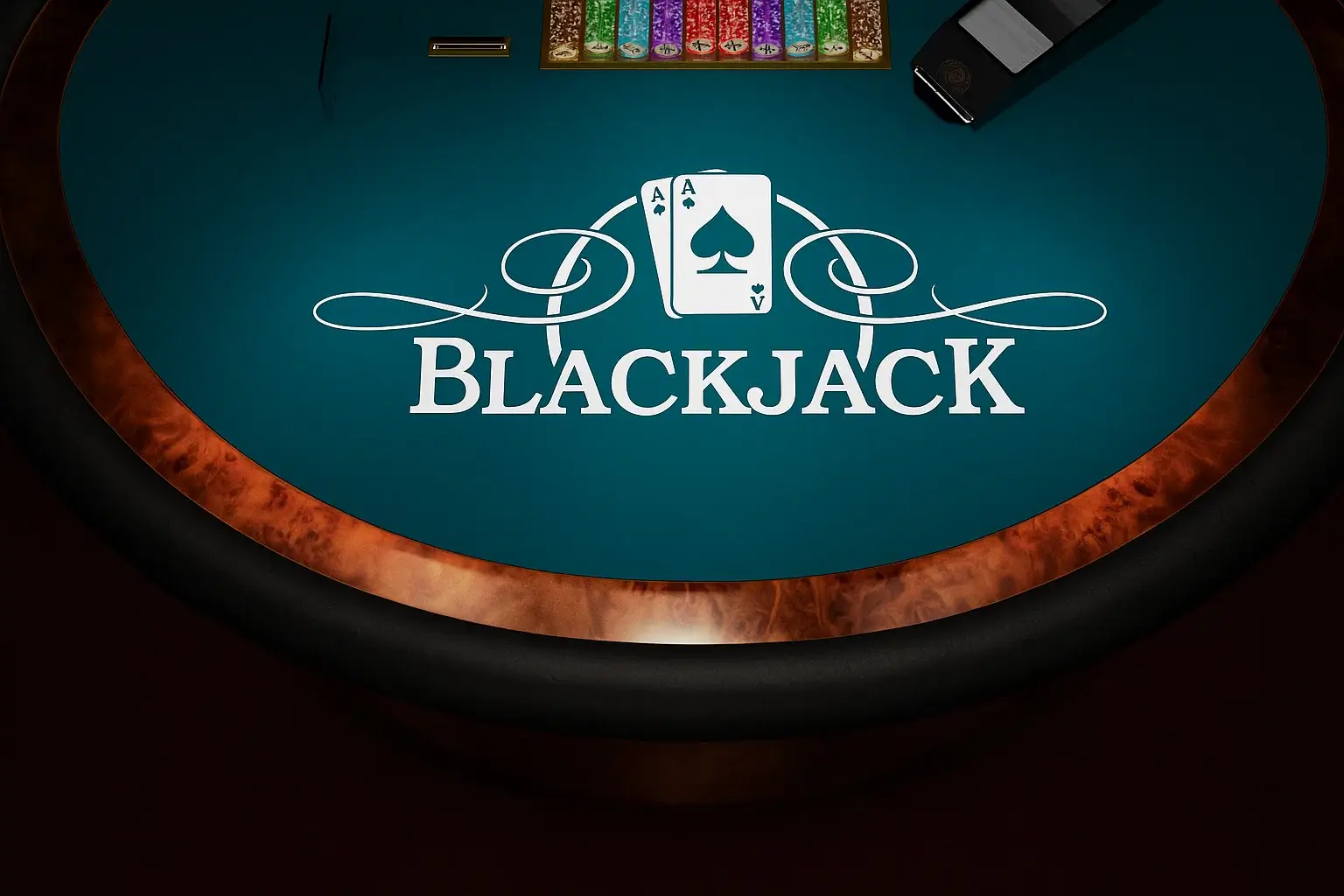
Why Blackjack Should Be Your First Stop
If I had to recommend one game for absolute beginners, blackjack would be it every single time. Why? Because it’s the rare casino game where your decisions actually matter – and I mean really matter. This isn’t some “pick red or black and pray” situation. Blackjack rewards smart play with the lowest house edge in the entire casino, often sitting at a sweet 0.5% or less if you play your cards right (pun absolutely intended).
The premise is beautifully simple: get closer to 21 than the dealer without going over. That’s it. A five-year-old could understand the concept. But here’s where it gets interesting – the strategy behind achieving that goal has been mathematically perfected over decades. We’re talking computer simulations, probability charts, and enough data to make a statistician weep with joy.
The Basic Strategy: Your New Best Friend
Here’s the deal – blackjack has what’s called “basic strategy,” and it’s not basic at all. It’s actually a mathematically perfect decision-making chart that tells you exactly what to do in every possible situation. Hit on 16 when the dealer shows a 10? Yep. Split those 8s? Always. Take insurance? Never (seriously, never – it’s a sucker bet disguised as protection).
The beautiful thing about basic strategy is that it’s completely legal, widely available, and the casinos don’t even mind if you use it. In fact, many online casinos will let you keep a strategy chart open on your screen while you play. It’s like taking an open-book exam where the teacher actively encourages you to use your notes.
Now, will basic strategy guarantee you win every session? Absolutely not. Lady Luck still has her say. But it will reduce the house edge to that magical 0.5% figure, which means you’re getting some of the fairest odds in the entire casino. Compare that to slot machines (often 5-10% house edge) or American roulette (5.26%), and you can see why serious players gravitate toward the blackjack tables.
Card Counting: The Elephant in the Virtual Room
Let’s address the elephant in the room: card counting. Yes, it’s real. No, it’s not illegal. And no, it probably won’t work in online casinos. Most online blackjack games use continuous shuffle machines (CSMs) or reshuffle after every hand, which makes counting about as effective as trying to predict lottery numbers by studying cloud patterns.
However – and this is a big however – some live dealer blackjack games do use physical shoes with penetration deep enough to make counting viable. But before you start imagining yourself as the next MIT Blackjack Team member, know that it requires serious dedication, practice, and a bankroll that can handle the variance. For beginners? Stick with basic strategy. It’s more than enough to keep you competitive.
Variations to Watch Out For
Not all blackjack games are created equal. The rules can vary significantly, and these variations dramatically affect the house edge:
Blackjack pays 3:2 – This is the standard, and anything less is highway robbery. Some games offer 6:5 blackjack payouts, which increases the house edge by about 1.4%. Avoid these like you’d avoid a shark in a swimming pool.
Number of decks – Generally, fewer decks mean better odds for the player. Single-deck blackjack can have a house edge as low as 0.15% with optimal play, while eight-deck shoes might push it to 0.6%.
Dealer hits on soft 17 – This rule adds about 0.22% to the house edge. Look for games where the dealer stands on all 17s.
Surrender option – Having the ability to surrender (forfeit half your bet and fold your hand) actually reduces the house edge by about 0.08%. It’s a small edge, but every little bit counts.
Double after split – Being able to double down after splitting pairs is favorable to players and shaves about 0.15% off the house edge.
Bankroll Management for Blackjack
Here’s some real talk about money management, because this is where most beginners crash and burn. Blackjack has variance – sometimes you’ll win six hands in a row, sometimes you’ll lose eight straight. It happens. The key is having enough bankroll to weather the storms.
A good rule of thumb: bring at least 50 times your minimum bet to the table. If you’re playing $5 hands, that’s $250. If that sounds like too much, then you’re playing at stakes that are too high for your bankroll. There’s no shame in grinding it out at the $1 tables – everyone starts somewhere, and it’s better to play longer at lower stakes than to blow your whole bankroll in ten minutes at the high-roller tables.
Also, set win/loss limits before you start playing. This isn’t some “motivational speaker” nonsense – it’s practical advice that separates people who enjoy gambling from people who develop problems. If you’ve won 50% of your starting bankroll, seriously consider walking away. If you’ve lost 50%, definitely walk away. The tables will still be there tomorrow.
Roulette: The Classic Game of Chance for All Player Levels
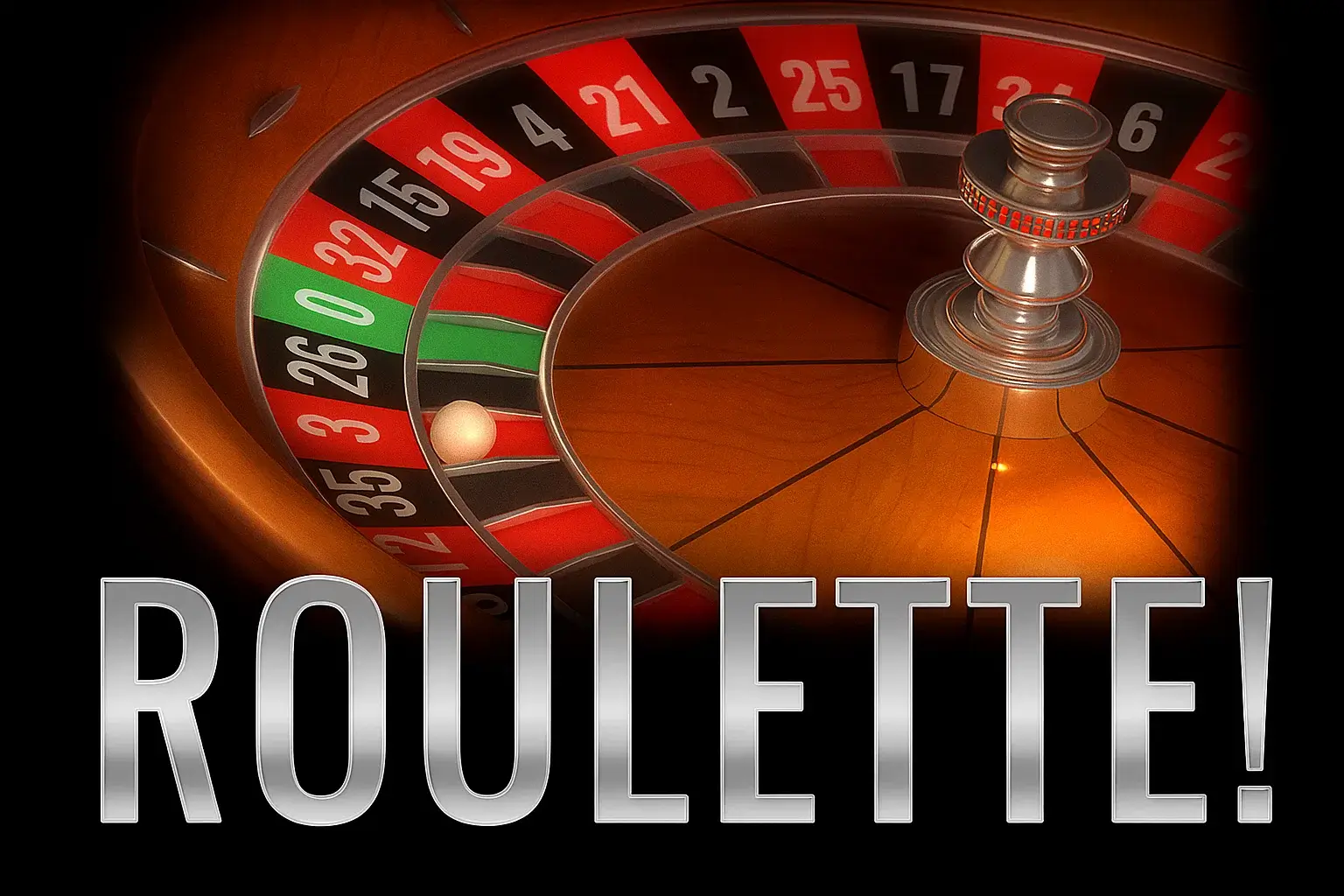
The Timeless Appeal of the Wheel
Roulette is the James Bond of casino games – sophisticated, elegant, and somehow always associated with luxury and high stakes. But here’s the secret: roulette is actually one of the most accessible games in the casino. You literally just pick numbers or colors and watch a ball bounce around a wheel. There’s no complex strategy to memorize, no decisions to make mid-game, and no way to screw things up with poor play.
This makes roulette absolutely perfect for beginners who want to experience the thrill of table games without the pressure of making crucial strategic decisions. You place your chips, the dealer spins the wheel, and fate does its thing. It’s pure, unadulterated gambling in its most distilled form.
But don’t mistake simplicity for lack of depth. Roulette has enough betting options to keep things interesting for years. You can bet on single numbers for 35:1 payouts, or spread your chips across multiple bets to increase your hit frequency. You can follow betting systems (more on those in a minute), or just let your gut guide you. The game accommodates all playstyles.
European vs. American: Know the Difference
This is crucial, so pay attention: always play European roulette when possible, never American roulette unless you’re being forced at gunpoint. I’m only slightly exaggerating.
Here’s why: American roulette has both a 0 and a 00 on the wheel, while European roulette only has a single 0. That seemingly small difference increases the house edge from 2.70% (European) to 5.26% (American). That’s nearly double! For perspective, if you play American roulette, you’re volunteering to lose money twice as fast as necessary. It’s like paying extra for the privilege of worse odds.
Some European roulette variants also offer the “en prison” or “la partage” rules, which return half your even-money bet if the ball lands on zero. These rules drop the house edge to an absolutely stellar 1.35% on even-money bets. If you find a European roulette game with these rules, treasure it like the gift it is.
Understanding the Betting Options
Roulette offers two main categories of bets: inside bets and outside bets.
Inside bets are placed on the numbered grid and offer higher payouts with lower probability:
- Straight up (single number): 35:1 payout
- Split (two numbers): 17:1 payout
- Street (three numbers): 11:1 payout
- Corner (four numbers): 8:1 payout
- Six line (six numbers): 5:1 payout
Outside bets are placed on the outer sections and offer lower payouts with higher probability:
- Red/Black: 1:1 payout (covers 18 numbers)
- Odd/Even: 1:1 payout (covers 18 numbers)
- High/Low: 1:1 payout (covers 18 numbers)
- Dozens: 2:1 payout (covers 12 numbers)
- Columns: 2:1 payout (covers 12 numbers)
The inside bets are where the excitement lives. Landing a straight-up bet and watching your chips multiply by 35 is a genuine thrill. But the outside bets are where you’ll actually have a fighting chance of leaving with profits on any given session. They’re the bread and butter of sensible roulette play.
Betting Systems: The Good, The Bad, and The Ugly
Let’s talk about betting systems, because you’re absolutely going to encounter them. The Martingale, the Fibonacci, the D’Alembert, the Labouchere – there are dozens of systems that claim to beat roulette, and they all have one thing in common: they don’t work in the long run.
The most popular is the Martingale system, where you double your bet after every loss. The theory is that eventually you’ll win and recoup all your losses plus one unit of profit. Sounds foolproof, right? Wrong. The reality is that you’ll eventually hit a losing streak so long that you either run out of money or hit the table limit. And it happens more often than you’d think.
That said, betting systems can make the game more structured and entertaining. I’ve seen players use them successfully for session management and discipline. Just understand that no betting system can overcome the mathematical house edge. They’re fun ways to organize your play, not magic bullets.
Live Dealer Roulette: The Best of Both Worlds
Here’s where online roulette really shines: live dealer games. You get the convenience of playing from home while still experiencing real wheels, real dealers, and real physics. No random number generators, no worries about whether the game is “rigged” (it isn’t, but I understand the paranoia).
Live dealer roulette also moves at a pace that’s perfect for beginners. You have plenty of time between spins to place your bets, and you can watch other players’ bets for ideas. Plus, many live dealer games offer features like statistics tracking, which shows you the hot and cold numbers (though remember, every spin is independent – the ball has no memory).
Some live studios even offer unique variations like Lightning Roulette, where random numbers get multiplied payouts up to 500:1, or Immersive Roulette with multiple camera angles and slow-motion replays. These games inject extra excitement into the classic format while maintaining the core gameplay.
The Social Aspect
One underrated aspect of roulette is its social nature. Unlike blackjack where you’re directly competing against the dealer, roulette players are all in it together, rooting for their numbers to hit. In live dealer games, you’ll see chat boxes filled with celebrations, commiserations, and friendly banter.
This makes roulette an excellent choice for beginners who might feel intimidated by more competitive games. Nobody’s going to criticize your bet selection (everyone’s bets are equally valid/invalid from a mathematical perspective), and there’s a genuine community feeling to celebrating big wins together.
Baccarat: The Simple High-Stakes Game with Fast Action
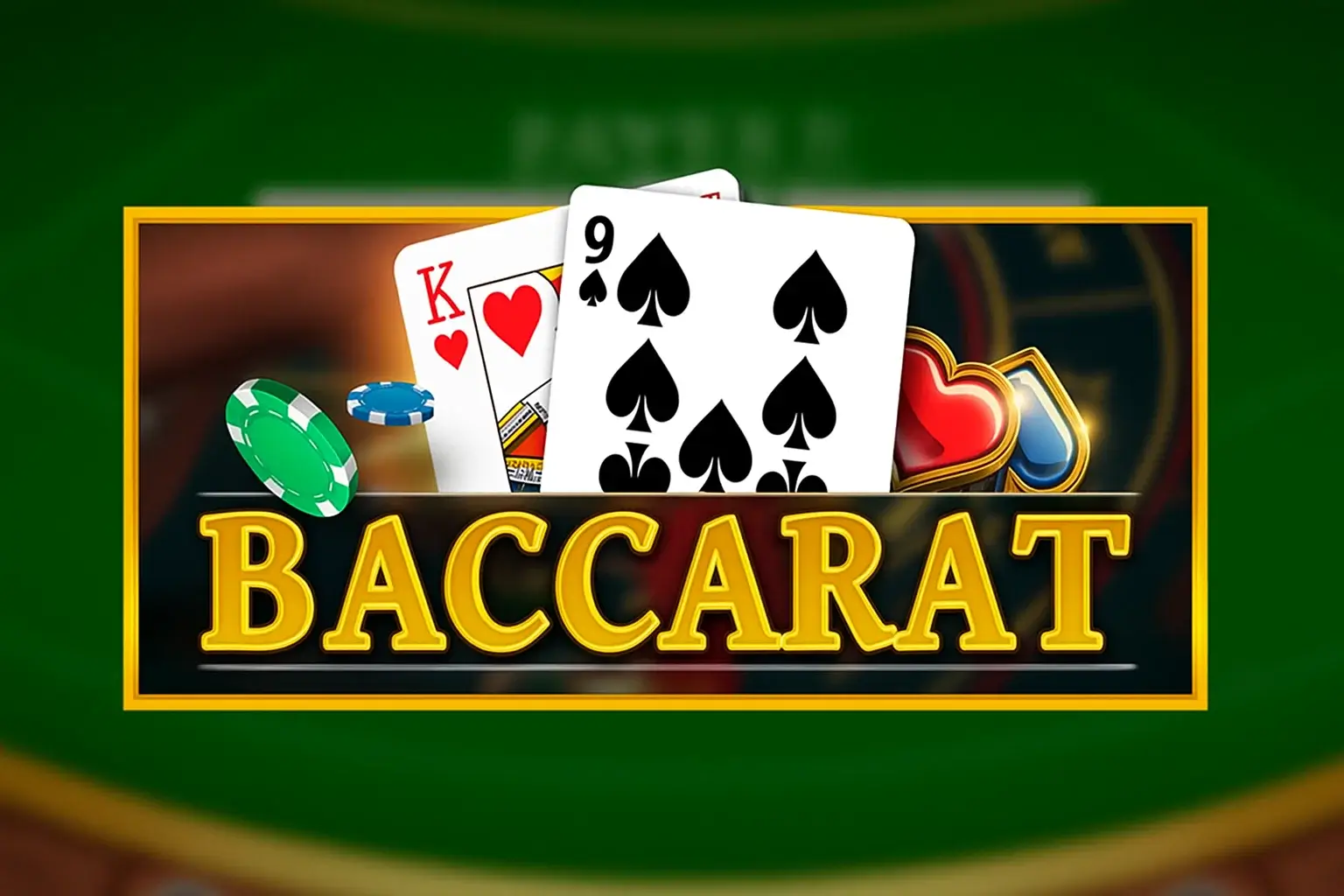
The Misconceptions About Baccarat
Baccarat has an image problem. Most people think it’s some exclusive, complicated game reserved for high rollers in tuxedos, probably because every James Bond movie shows 007 playing baccarat or its variant, chemin de fer, in some Monte Carlo casino while sipping martinis and exchanging innuendos with beautiful spies.
The reality? Baccarat is possibly the simplest table game in the entire casino. It’s even easier than roulette because there are only three bets to choose from, and the dealer does literally everything else. You don’t even touch the cards in most versions. Your entire decision-making process consists of: “Do I bet on Player, Banker, or Tie?” That’s it. That’s the whole game.
Despite this simplicity – or perhaps because of it – baccarat is hugely popular in Asian markets and accounts for a massive percentage of casino revenues worldwide. Walk into any Macau casino and the baccarat tables will be packed with players betting thousands per hand. But here’s the great news for beginners: the online versions offer minimum bets as low as $1, making this “high roller game” accessible to literally anyone.
The Rules (Which You Barely Need to Know)
Here’s the absolute basics: two hands are dealt – one called “Player” and one called “Banker.” Each hand receives two cards initially. The hand with a total closest to 9 wins. That’s the entire premise.
Card values are simple: Aces are worth 1, cards 2-9 are face value, and 10s and face cards are worth 0. If your hand total is over 9, you drop the first digit. So a 7 and 8 (which equals 15) becomes a 5. A King and a 9 equals 9. Two 10s equal 0.
Now, here’s the part where beginners get confused: sometimes a third card is drawn for either hand. But here’s the secret – you don’t need to memorize these rules. The dealer handles everything automatically based on fixed drawing rules. It’s not your decision. You just watch it happen.
Seriously, I’ve been playing baccarat for years and I still don’t have all the third-card rules memorized. It doesn’t matter. The game proceeds correctly whether you understand the rules or not.
The Three Bets and What They Mean
Player bet: Pays 1:1 (even money) with a house edge of 1.24%. If the Player hand wins, you win. Simple as that.
Banker bet: Pays 0.95:1 (even money minus 5% commission) with a house edge of 1.06%. The Banker bet has slightly better odds because the Banker hand has a tiny advantage in the drawing rules. That’s why casinos charge a 5% commission on winning Banker bets.
Tie bet: Pays 8:1 or sometimes 9:1, with a house edge of around 14.4%. This is what we in the industry call a “sucker bet.” The payout looks attractive, but ties occur less than 10% of the time. Avoid this bet like you’d avoid expired seafood.
The optimal strategy in baccarat is brain-dead simple: always bet on Banker, ignore everything else. Yes, you pay a commission on wins, but even with that commission, the Banker bet has the lowest house edge. Some players alternate between Player and Banker for variety, which is fine – the difference is minimal. But seriously, never bet on Tie unless you just hate your money.
Why Baccarat is Perfect for Beginners
Beyond the simplicity, baccarat offers several advantages for new players:
Speed: Hands resolve quickly, often in under a minute. This means you get lots of action without lengthy sessions.
Low minimum bets online: While Macau whales might bet $100,000 per hand, you can play for $1-$5 in most online casinos.
Low house edge: At 1.06% for Banker bets, you’re getting some of the best odds in the casino, similar to blackjack but without needing to memorize strategy charts.
No strategy required: There’s no way to play baccarat “wrong” (assuming you avoid Tie bets). This removes the intimidation factor entirely.
Pattern tracking: Many players enjoy tracking patterns and trends, looking for “runs” of Banker or Player wins. Does this help? Mathematically, no – each hand is independent. But it makes the game more engaging and gives you something to analyze.
Common Baccarat Variations
While Punto Banco (standard baccarat) is the most common version, you’ll encounter several variations:
Mini-Baccarat: Lower table limits and faster pace. This is what you’ll typically find in online casinos.
Speed Baccarat: Even faster, with hands completing in 20-30 seconds. Great if you’re impatient or have limited time.
Live Baccarat: Real dealers, real cards, real shuffling. The gold standard for online play.
No Commission Baccarat: Banker bets pay even money with no commission, but if Banker wins with a 6, it pays 0.5:1. The house edge is similar to regular baccarat but with simpler payouts.
Super 6/Lucky 6 Baccarat: Another commission-free variant where Banker wins with 6 pay 0.5:1.
The Baccarat Scorecard: Meaningless but Fun
If you play live baccarat, you’ll see something called a scorecard or roadmap displayed, showing the pattern of previous results in various grid formats (Big Road, Bead Plate, Big Eye Boy, Small Road, Cockroach Pig – yes, these are real names).
Let me be crystal clear: these scorecards are mathematically meaningless. They can’t predict future outcomes because each hand is independent. The shoe has no memory. Past results don’t influence future results.
However – and this is important – scorecards make the game more interesting. They give players something to study, patterns to spot, and a sense of strategy even where none exists. If following patterns makes the game more enjoyable for you, go for it. Just don’t make the mistake of thinking you’ve discovered a winning system.
Craps: The Most Exciting Atmosphere at the Table
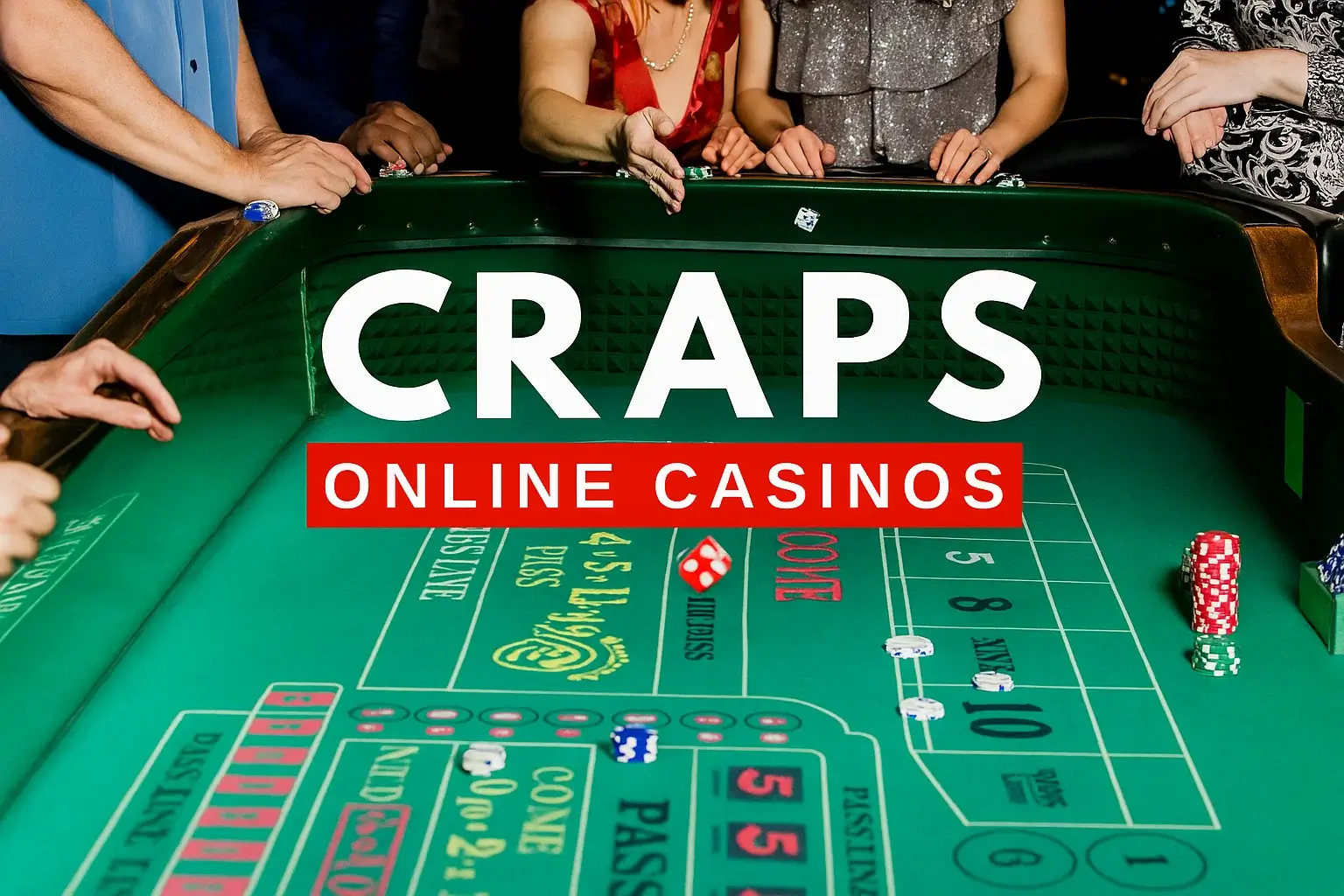
The Intimidation Factor
Let’s be honest: craps scares the hell out of most beginners. You walk up to a live craps table and see what looks like a hieroglyphics-covered felt with dozens of betting areas, cryptic names like “yo-leven” and “boxcars,” players shouting incomprehensible jargon, and chips flying everywhere while everyone either celebrates wildly or groans in unison. It’s sensory overload.
I get it. I really do. Craps has the steepest learning curve of any major casino game. But here’s what I want you to understand: beneath all that chaos and complexity lies a game with some of the absolute best odds in the entire casino. Once you learn the basics, craps transforms from intimidating to exhilarating. There’s literally no other table game that matches the energy and camaraderie of a hot craps table where everyone’s winning together.
The Good News for Online Players
Here’s the beautiful secret: online craps removes 90% of the intimidation factor. You can take your time placing bets without feeling rushed. You can reference guides without anyone judging you. You can make mistakes without a table full of people staring. And you can start with bets as low as $1 while you learn.
The social atmosphere might be diluted in online craps compared to the live casino experience, but for learning purposes? Online craps is a godsend. Master the game online, then take your newfound knowledge to a live casino if you want the full experience.
The Core Concept
Here’s craps in its simplest form: someone (called the “shooter”) rolls two dice. You bet on the outcomes. That’s it at the most fundamental level.
The main game revolves around something called the “pass line bet,” which works like this:
Come-out roll (the first roll of a new round):
- Roll 7 or 11: Pass line wins
- Roll 2, 3, or 12 (“craps”): Pass line loses
- Roll anything else (4, 5, 6, 8, 9, 10): That number becomes “the point”
Point phase (if a point was established):
- Roll the point number again: Pass line wins
- Roll a 7: Pass line loses (called “sevening out”)
- Roll anything else: Keep rolling
That’s the backbone of craps. Everything else is built on top of this foundation.
The Best Bets in Craps
This is crucial information that will save you money: craps offers both the best and worst bets in the entire casino on the same table. Knowing which is which separates smart players from suckers.
The Good Bets:
Pass Line: 1.41% house edge. Your bread and butter bet. Always available, easy to understand, and you’re rooting with the shooter.
Don’t Pass: 1.36% house edge. Slightly better odds than Pass Line, but you’re betting against the shooter. Mathematically superior but socially awkward at live tables (you’re essentially rooting against everyone else).
Come/Don’t Come: Identical to Pass/Don’t Pass but placed after a point is established. Same house edges.
Odds Bets: Here’s the holy grail – odds bets have ZERO house edge. That’s right, 0%. These are additional bets placed behind your Pass/Don’t Pass bets and pay true odds. Most online casinos offer at least 3x-4x-5x odds, meaning you can bet 3-5 times your original pass line bet with no house edge. This is the best bet in any casino, period. Always take full odds if your bankroll allows.
The Bad Bets:
Any 7: 16.67% house edge. Absolutely horrific.
Any Craps: 11.11% house edge. Stay far away.
Hardways: 9.09% to 11.11% house edge. These are bets that a number will be rolled as doubles (hard 4 = two 2s) before being rolled “easy” or before a 7. They’re sucker bets disguised as excitement.
Proposition bets (the center of the table): These range from 9% to 16% house edge. They’re called proposition bets because they’re proposing you donate money to the casino.
The rule of thumb: stick to Pass Line with odds, Come bets with odds, and Place bets on 6 and 8 (1.52% house edge). Ignore everything in the middle of the table. Your wallet will thank you.
Why Craps Has That Special Energy
There’s something unique about craps that creates an atmosphere unlike any other casino game. In blackjack, you might affect other players’ hands (though this is mostly superstition). In poker, you’re directly competing against others. But in craps, when everyone’s betting Pass Line, you’re all on the same team. When the shooter’s on a hot roll, everyone celebrates together. When someone sevens out, everyone groans together.
This communal aspect creates genuine camaraderie. I’ve seen complete strangers high-fiving, cheering, and buying each other drinks at craps tables. It’s the most social game in the casino, and that infectious energy is a huge part of the appeal.
The Learning Curve is Worth It
I won’t sugarcoat it: learning craps takes effort. You’ll need to spend time understanding the betting options, the odds, and the flow of the game. You’ll probably make mistakes early on. That’s fine. Everyone does.
But here’s my promise: once you’re past that initial learning phase, craps becomes incredibly rewarding. Not just financially (though those zero-edge odds bets are fantastic), but experientially. There’s a reason craps players are often the most passionate gamblers in any casino – the game just hits different.
Start with Pass Line bets and odds. Get comfortable with that. Then gradually add Come bets and Place bets on 6 and 8. Ignore everything else until you’re ready to explore further. Take it slow, play online first, and don’t be afraid to start with minimum bets while you learn.
Poker: Skill vs. Luck – What You Need to Know
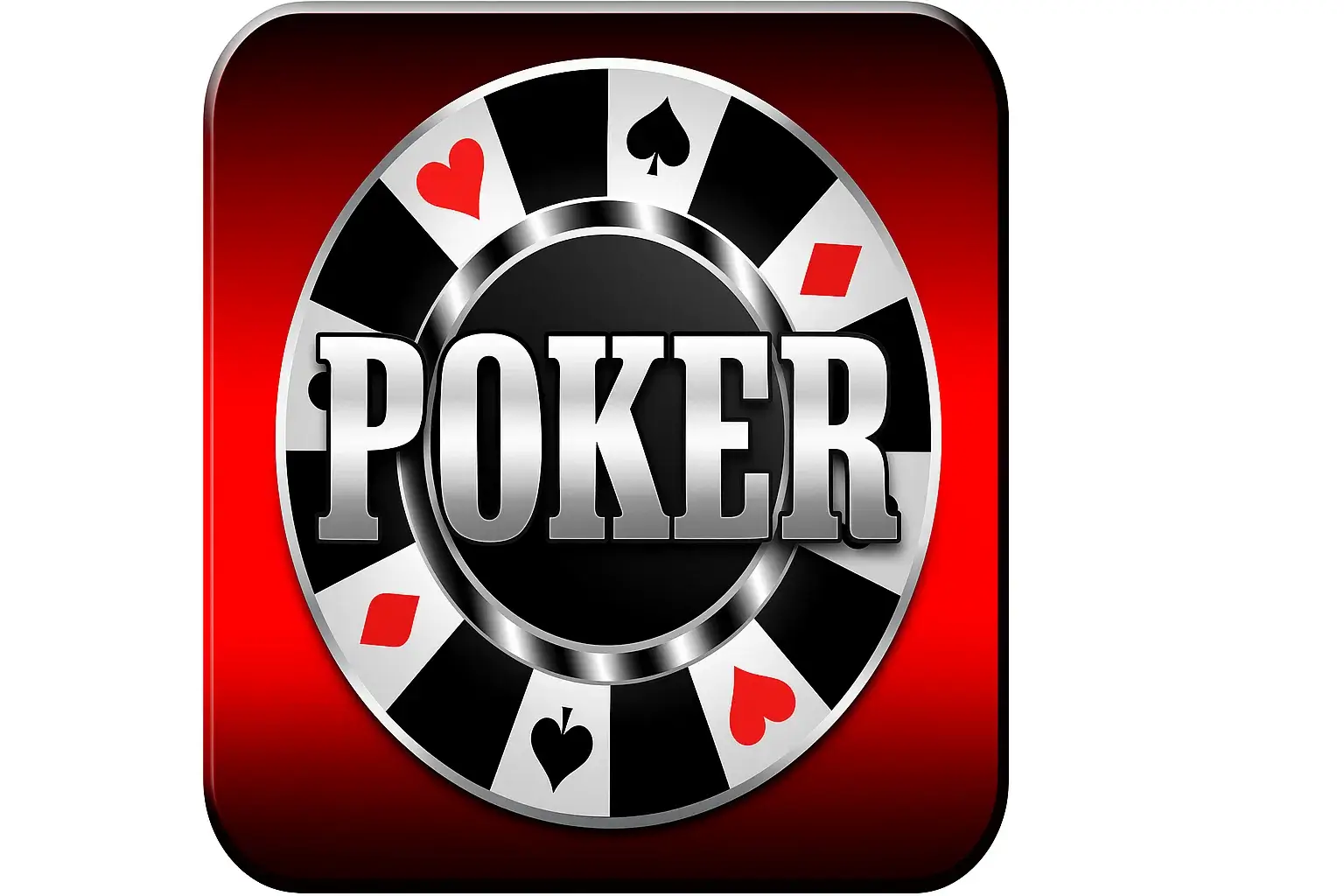
The Poker Spectrum
Here’s where things get complicated: “poker” isn’t really one game – it’s an entire family of games. And when we’re talking about casino poker versus poker rooms, we’re discussing completely different animals.
Casino poker (also called “poker-based table games”) includes games like Caribbean Stud, Three Card Poker, Ultimate Texas Hold’em, and Pai Gow Poker. In these games, you play against the house, not other players. The house has an edge, just like blackjack or baccarat.
Poker rooms (cash games and tournaments) feature games like Texas Hold’em and Omaha where you play against other players. The casino takes a small percentage (called rake) but has no stake in who wins or loses. This is the poker you see on TV.
For beginners, I recommend starting with casino poker. It’s simpler, less intimidating, and you don’t need to worry about being outplayed by sharks who’ve been grinding for years. Let’s focus on the most popular casino poker variants.
Three Card Poker: The Gateway Drug
Three Card Poker is brilliant because it’s simple enough for complete beginners while still offering some strategic depth. You get three cards, the dealer gets three cards, and you’re trying to have the better hand. That’s the core concept.
There are two bets:
Ante bet: You and the dealer compare hands. If you win, you get paid even money. However, the dealer needs to “qualify” with Queen-high or better. If the dealer doesn’t qualify, you only win your ante and push on your play bet.
Pair Plus: This is a side bet based solely on your hand quality. Get a pair or better, and you win according to a pay table (typically pairs pay 1:1, flushes pay 4:1, straights pay 6:1, three of a kind pays 30:1, and straight flushes pay 40:1).
The optimal strategy is straightforward: play (make the play bet) with Q-6-4 or better, fold anything worse. That’s it. You don’t need to memorize complex charts – just remember “Queen, six, four.”
The house edge on the Ante bet is around 3.37%, and on Pair Plus it’s typically 2.32% (though this varies by pay table). Not the lowest in the casino, but not terrible either, and the game is fast-paced and entertaining.
Caribbean Stud: The Original Casino Poker Game
Caribbean Stud was the game that started the casino poker revolution in the 1980s. You’re playing five-card poker against the dealer. You ante, get five cards, see one of the dealer’s cards, and decide whether to fold (lose your ante) or raise (bet twice your ante).
The catch: the dealer needs to qualify with Ace-King or better. If the dealer doesn’t qualify, you win your ante but push on your raise. If the dealer qualifies and you win, you get paid on a pay table based on your hand strength.
The optimal strategy is more complex than Three Card Poker, but here’s a simplified version that gets you close to optimal:
- Always raise with pairs or better
- Always fold with less than Ace-King
- With Ace-King, raise if you have a Queen or Jack and the dealer’s upcard doesn’t match your cards
The house edge is around 5.22%, which is higher than we’d like, but the game offers a progressive jackpot side bet where you can win massive amounts for premium hands (though the side bet itself has a high house edge).
Ultimate Texas Hold’em: Strategy Meets Action
This is my personal favorite casino poker variant. It uses the familiar Texas Hold’em hand rankings, but you’re playing against the dealer, not other players.
You make equal Ante and Blind bets. You get two hole cards and can make a Play bet of 3x or 4x your ante, or check. After the flop, if you haven’t bet yet, you can bet 2x your ante or check. After the river, if you still haven’t bet, you must either bet 1x your ante or fold.
The strategy is nuanced but learnable:
- Pre-flop: Bet 4x with most playable hands
- After flop: Bet 2x with good made hands or strong draws
- After river: Bet 1x if you can beat Ace-high
The house edge with optimal strategy is around 2.18%, which is reasonable for the entertainment value. The game has a nice balance of strategy and luck, and it feels more like “real” poker than other casino variants.
Pai Gow Poker: The Slowest Game in the Casino (In a Good Way)
Pai Gow Poker is unique: it’s slow-paced, has lots of pushes (ties), and is perfect for players who want to stretch their bankroll and enjoy comp drinks.
You get seven cards and split them into a five-card hand and a two-card hand. Your five-card hand must be stronger than your two-card hand. The dealer does the same. To win, both your hands must beat both the dealer’s hands. If you win one and lose one, it’s a push.
The house edge is around 2.84%, but the push rate is almost 41%, meaning you’ll tie frequently. This makes Pai Gow Poker one of the lowest-volatility games in the casino – perfect for beginners who want to play for hours without burning through their bankroll.
The strategy involves learning how to set your hands optimally, but most casinos will let you set your hands according to “house way” rules if you’re unsure. Some online versions even set your hands automatically.
Poker Rooms: A Different Beast Entirely
Now, if you want to venture into actual poker rooms where you’re playing against other people, understand that this is a completely different skill set. You’re not fighting a mathematical house edge – you’re trying to outplay human opponents while paying a small rake.
This requires studying:
- Hand selection (which starting hands to play)
- Position (where you sit relative to the dealer button matters enormously)
- Pot odds (comparing the current pot to the cost of calling)
- Player reading (identifying opponents’ tendencies)
- Bet sizing (how much to bet in different situations)
- Bankroll management (much more crucial when playing against others)
Texas Hold’em and Pot Limit Omaha are the most popular variants. Beginners should start with low-stakes cash games or micro-stakes tournaments, and expect a steep learning curve. Unlike casino poker where the house edge is fixed, in poker rooms your edge comes entirely from being better than your opponents.
The Bottom Line on Poker
For complete beginners, start with Three Card Poker or Pai Gow Poker. They’re simple, fun, and give you a taste of poker without overwhelming complexity. Once you’re comfortable, try Ultimate Texas Hold’em for a game that rewards strategy while staying accessible.
Only venture into poker rooms if you’re serious about studying the game. Poker is unique in the gambling world because it’s one of the few games where skill genuinely dominates luck in the long run. But that means you need to develop that skill, which takes time, effort, and usually some painful (and expensive) lessons.
Comparison Table: RTP, Complexity, and Minimum Bets
Let’s break down these five games head-to-head so you can make an informed decision based on your priorities:
Return to Player (RTP) / House Edge
RTP is the theoretical percentage returned to players over the long term. A 99% RTP means a 1% house edge. Higher RTP = better odds for players.
| Game | Best RTP | House Edge | Notes |
|---|---|---|---|
| Blackjack | 99.5% | 0.5% | With optimal basic strategy |
| Craps | 100% | 0% | On odds bets specifically |
| Baccarat | 98.94% | 1.06% | Banker bet only |
| Roulette | 97.30% | 2.70% | European single-zero only |
| Three Card Poker | 96.63% | 3.37% | Ante bet with optimal play |
| Ultimate Texas Hold’em | 97.82% | 2.18% | With optimal strategy |
| Caribbean Stud | 94.78% | 5.22% | With optimal strategy |
| Pai Gow Poker | 97.16% | 2.84% | With optimal hand setting |
Winner: Blackjack and Craps (odds bets) offer the absolute best odds in the casino.
Complexity / Learning Curve
This is subjective, but here’s my assessment based on years of watching beginners learn these games:
| Game | Complexity | Learning Time | Strategy Required |
|---|---|---|---|
| Roulette | ★☆☆☆☆ | 5 minutes | None (just luck) |
| Baccarat | ★☆☆☆☆ | 10 minutes | Minimal (bet Banker) |
| Three Card Poker | ★★☆☆☆ | 20 minutes | Simple (Q-6-4 rule) |
| Pai Gow Poker | ★★☆☆☆ | 30 minutes | Moderate (hand setting) |
| Blackjack | ★★★☆☆ | 2-3 hours | Significant (basic strategy) |
| Ultimate Texas Hold’em | ★★★☆☆ | 2-3 hours | Significant (betting points) |
| Caribbean Stud | ★★★☆☆ | 1-2 hours | Moderate to Significant |
| Craps | ★★★★☆ | 5-10 hours | Moderate (knowing good bets) |
| Poker Rooms | ★★★★★ | Months to years | Extensive (multi-faceted) |
Winner: Roulette and Baccarat are the easiest entry points. Blackjack offers the best balance of simplicity and reward.
Minimum Bets (Typical Online Casino)
These are approximate ranges you’ll find at most reputable online casinos:
| Game | Typical Min Bet | Common Range | High Roller Max |
|---|---|---|---|
| Roulette | $0.10 – $1 | $0.10 – $25 | $500 – $5,000 |
| Baccarat | $1 – $5 | $1 – $100 | $500 – $10,000 |
| Blackjack | $1 – $5 | $1 – $100 | $100 – $5,000 |
| Three Card Poker | $1 – $5 | $1 – $50 | $100 – $1,000 |
| Craps | $1 – $5 | $1 – $25 | $100 – $5,000 |
| Ultimate Texas Hold’em | $1 – $5 | $1 – $50 | $100 – $2,000 |
| Caribbean Stud | $1 – $5 | $1 – $25 | $100 – $1,000 |
| Pai Gow Poker | $5 – $10 | $5 – $50 | $100 – $2,000 |
Note: Live dealer games typically have higher minimums ($5-$25) than RNG games ($1-$5).
Winner: Roulette often offers the absolute lowest entry point, especially for outside bets where you can bet as little as $0.10.
Session Duration (How Long Your Money Lasts)
Based on $100 bankroll at minimum bet with average play:
| Game | Expected Hands/Spins | Average Session Time | Volatility |
|---|---|---|---|
| Pai Gow Poker | 200-300 | 3-4 hours | Very Low |
| Baccarat | 100-200 | 2-3 hours | Low |
| Blackjack | 100-200 | 2-3 hours | Low to Moderate |
| Roulette | 100-150 | 1-2 hours | Moderate |
| Craps (Pass + Odds) | 80-120 | 1-2 hours | Moderate |
| Three Card Poker | 60-100 | 1-2 hours | Moderate to High |
| Ultimate Texas Hold’em | 50-80 | 1-1.5 hours | High |
| Caribbean Stud | 40-70 | 45-90 minutes | High |
Winner: Pai Gow Poker is the king of bankroll preservation due to its high push rate.
Skill vs. Luck Factor
This shows how much your decisions affect outcomes:
| Game | Skill Component | Luck Component | Skill Ceiling |
|---|---|---|---|
| Poker Rooms | 70% | 30% | Very High |
| Blackjack | 50% | 50% | High |
| Ultimate Texas Hold’em | 45% | 55% | Moderate-High |
| Craps | 40% | 60% | Moderate |
| Three Card Poker | 35% | 65% | Low-Moderate |
| Caribbean Stud | 30% | 70% | Low-Moderate |
| Pai Gow Poker | 30% | 70% | Low-Moderate |
| Baccarat | 5% | 95% | Very Low |
| Roulette | 0% | 100% | None |
Winner: If you want skill to matter, blackjack and poker are your games. If you want pure luck, roulette and baccarat deliver.
Social/Atmosphere Factor
How much does the game encourage interaction and excitement?
| Game | Live Casino Energy | Online Engagement | Beginner-Friendly Atmosphere |
|---|---|---|---|
| Craps | ★★★★★ (electric) | ★★☆☆☆ | ★★★★★ (everyone roots together) |
| Roulette | ★★★★☆ | ★★★★☆ | ★★★★★ (casual and welcoming) |
| Baccarat | ★★★★☆ | ★★★☆☆ | ★★★★☆ (relaxed vibe) |
| Pai Gow Poker | ★★★☆☆ | ★★☆☆☆ | ★★★★☆ (slow-paced, friendly) |
| Three Card Poker | ★★★☆☆ | ★★★☆☆ | ★★★★☆ (approachable) |
| Blackjack | ★★★☆☆ | ★★★☆☆ | ★★★☆☆ (can be judgmental) |
| Ultimate Texas Hold’em | ★★☆☆☆ | ★★★☆☆ | ★★★☆☆ (neutral) |
| Caribbean Stud | ★★☆☆☆ | ★★☆☆☆ | ★★★★☆ (relaxed) |
| Poker Rooms | ★★★★☆ | ★★★★☆ | ★★☆☆☆ (intimidating for newbies) |
Winner: Craps has unmatched energy in live casinos. Roulette is the most welcoming for absolute beginners.
Speed of Play
How fast money changes hands:
| Game | Hands/Hour (Approx) | Decision Time | Pace |
|---|---|---|---|
| Mini-Baccarat | 150-200 | Seconds | Very Fast |
| Blackjack | 60-80 | Seconds | Fast |
| Craps | 100-120 | Seconds | Fast (when hot) |
| Roulette | 40-60 | 30-60 seconds | Moderate |
| Three Card Poker | 50-70 | Seconds | Fast |
| Ultimate Texas Hold’em | 40-60 | 15-30 seconds | Moderate-Fast |
| Caribbean Stud | 40-50 | 15-30 seconds | Moderate |
| Pai Gow Poker | 30-40 | 1-2 minutes | Slow |
Winner: Baccarat is blazing fast. Pai Gow Poker is wonderfully slow for those who want to savor their session.
The Final Verdict: Which Game is Right for You?
After all this analysis, let’s make some practical recommendations based on different player profiles:
“I’ve Never Gambled Before and Want the Easiest Entry Point”
Recommendation: European Roulette
Start here. Place $5 on red or black and watch the wheel spin. You’ll immediately understand the concept, feel the excitement, and get a taste of casino gaming without any pressure. Once you’re comfortable, explore inside bets or try other games.
Runner-up: Baccarat (just bet on Banker every time)
“I Want the Best Odds and Don’t Mind Learning Strategy”
Recommendation: Blackjack
Spend an hour learning basic strategy, then enjoy some of the best odds in the casino. Use a strategy chart until it’s memorized. Your time investment will pay dividends every session.
Runner-up: Craps (Pass Line + full odds)
“I Have a Small Bankroll and Want to Play for Hours”
Recommendation: Pai Gow Poker
The high push rate means you’ll see lots of ties, preserving your bankroll. Perfect for grinding out comp points and enjoying free drinks (in live casinos).
Runner-up: Baccarat (small bets, slow play)
“I Want Maximum Excitement and Energy”
Recommendation: Craps
Nothing beats a hot craps table. Yes, there’s a learning curve, but the payoff in pure entertainment value is worth it. Start online to learn, then hit a live casino for the full experience.
Runner-up: Live Dealer Roulette (with multiple simultaneous bets)
“I’m Competitive and Want Skill to Matter”
Recommendation: Blackjack (for beginners) or Poker Rooms (for dedicated learners)
If you’re just starting out, blackjack rewards skill while remaining accessible. If you’re willing to invest serious time studying, poker rooms offer the highest skill ceiling and the possibility of being a long-term winner.
Runner-up: Ultimate Texas Hold’em (good middle ground)
“I Want Simple but Not Boring”
Recommendation: Three Card Poker
Easy enough for complete beginners but with enough variation to stay interesting. The Pair Plus side bet adds excitement, and the Q-6-4 strategy is simple to remember.
Runner-up: Baccarat (with pattern tracking for engagement)
“I’m a High Roller Who Wants Prestige”
Recommendation: Baccarat
This is the game of choice for high-stakes players worldwide. The simple gameplay lets you focus on bet sizing strategy, and many casinos offer exclusive VIP baccarat rooms.
Runner-up: High-limit Blackjack (with side bets)
“I Want to Practice Before Risking Real Money”
Recommendation: Start with free-play versions of all these games
Most online casinos offer free-play modes where you can practice with virtual currency. Use these to find which games you enjoy most before depositing real money. There’s zero shame in practicing – it’s the smart play.
Pro Tips for Beginners (From Someone Who’s Seen It All)
Before we wrap up, let me share some hard-earned wisdom that applies regardless of which game you choose:
Bankroll Management is Everything
I cannot stress this enough: the difference between gambling as entertainment and gambling as a problem is bankroll management. Never gamble with money you can’t afford to lose. Set a budget before you start, and stick to it religiously. If you lose your predetermined amount, walk away. If you win big, bank at least half and only play with the rest.
The general rule: your bankroll should be at least 50x your average bet, preferably 100x. This gives you enough cushion to weather normal variance without busting out quickly.
Take Advantage of Bonuses (But Read the Fine Print)
Online casinos offer deposit bonuses, free play, and other promotions. Use them! But always read the wagering requirements. A 100% match bonus might sound amazing, but if it requires 50x playthrough, you’re unlikely to ever withdraw those bonus funds.
Look for bonuses with reasonable playthrough requirements (20-30x is manageable) and check which games contribute to playthrough. Often, table games contribute less than slots toward meeting wagering requirements.
Start Small, Scale Gradually
Don’t jump into $25 hands on your first session. Start at the lowest limits available, get comfortable with the game flow, and gradually increase stakes as your skills and bankroll grow. There’s no award for betting big when you’re still learning.
I’ve seen countless players blow through $500 in fifteen minutes because they started at stakes that were too high for their skill level and bankroll size. Don’t be that person.
Use Strategy Cards (They’re Not Cheating)
For games like blackjack, having a strategy card open while you play online is completely legal and smart. Casinos don’t mind because you’re still facing a house edge – you’re just minimizing it. Use every tool available to you.
Practice Good Session Management
Set time limits, not just money limits. It’s easy to lose track of time when you’re deep in a session. Set alarms if necessary. Take breaks every 30-60 minutes to clear your head and reassess.
Also, never chase losses. This is the oldest rule in gambling and the most frequently broken. If you’re on a losing streak, walking away is often the best play. The tables will still be there tomorrow.
Learn to Walk Away
The hardest skill in gambling is knowing when to quit – both when winning and losing. Set win goals and loss limits before you start. If you hit either number, have the discipline to stop. Most players can get ahead but very few can stay ahead because they don’t know when to walk away.
A good rule: if you double your starting bankroll, pocket the original amount plus half the profits and only play with what’s left. This guarantees you walk away a winner even if you give back some profit.
Focus on Entertainment Value
Remember that the house always has an edge (except in poker rooms where you’re playing against others). You should expect to lose money long-term and view any wins as a bonus. If you’re playing with the expectation of making money, you’re setting yourself up for disappointment and potential gambling problems.
Instead, think of your bankroll as an entertainment budget. If you spend $100 on a night out at the casino and get several hours of entertainment, that’s money well spent even if you lose it all. If you happen to walk away with profits, that’s just a cherry on top.
Stay Sober (Or At Least Mostly Sober)
Look, I get it – casinos offer free drinks, and gambling is often a social activity involving alcohol. I’m not your mother, so I won’t tell you to abstain completely. But understand that alcohol impairs decision-making, makes you overconfident, and causes you to bet more than you should.
If you’re going to drink, set strict limits. Have one drink per hour maximum, and switch to water regularly. Your bankroll (and your head the next morning) will thank you.
Don’t Fall for Betting Systems
I mentioned this earlier but it bears repeating: betting systems don’t work. The Martingale, Fibonacci, D’Alembert – they’re all mathematically proven to fail against a house edge. They can make your play more structured and entertaining, but they will not overcome the casino’s mathematical advantage.
Anyone selling a “guaranteed” betting system is either deluded or a con artist. Save your money.
Ignore Other Players’ Opinions
Especially in blackjack, you’ll sometimes encounter players who get upset if you “play wrong” and supposedly cost them a win. Ignore these people. Your decisions at the table affect everyone equally in the long run – sometimes helping them, sometimes hurting them, but averaging out to zero.
Play your own game according to basic strategy and don’t let superstitious players bully you into making suboptimal plays.
Take Notes and Track Results
If you’re serious about improving, keep a gambling journal. Track what you play, how long you play, and your results. This helps you identify which games you’re most successful at and can reveal problematic patterns before they become serious issues.
Many players are shocked when they actually calculate their losses over time. It’s a sobering reality check that can help you make smarter decisions.
The Bottom Line
So there you have it – a comprehensive breakdown of the five best table games for beginners, complete with everything you need to know to get started. Let’s do a quick recap:
Blackjack offers the best combination of low house edge and achievable strategy. If you’re willing to learn basic strategy, this should probably be your main game.
Roulette is perfect for absolute beginners who want immediate fun with zero learning curve. Just remember: European wheels only, never American.
Baccarat is the simplest high-end game in the casino. Bet on Banker, ignore everything else, and enjoy the ride.
Craps has a steep learning curve but offers the best odds in the casino and unmatched excitement. Take the time to learn it properly.
Poker (in its various forms) ranges from simple casino variants to complex poker room games. Start with Three Card Poker or Pai Gow Poker, and only venture into poker rooms if you’re serious about studying the game.
The truth is, there’s no single “best” game for everyone. It depends on what you value: odds, simplicity, excitement, social interaction, skill expression, or bankroll preservation. The beauty of casino table games is that there’s something for every preference.
My personal recommendation for complete beginners? Start with European roulette to get comfortable with the casino environment, then move to blackjack and learn basic strategy. Once you’ve got those down, explore baccarat for simplicity and craps for excitement. Try the different poker variants to see if any click with you.
Most importantly, remember that gambling should be entertainment, not income. Play games you enjoy, bet amounts you’re comfortable with, and never chase losses. The moment it stops being fun is the moment you should walk away.
The tables are open 24/7, both online and in person. There’s no rush. Take your time, learn properly, manage your bankroll wisely, and enjoy the journey. Who knows? You might just find your new favorite hobby.
Now get out there and make some bets. Just remember everything I taught you, yeah? And for the love of everything holy, avoid the tie bet in baccarat and the proposition bets in craps. Your future self will thank you.
Good luck at the tables, and may the variance be ever in your favor!
